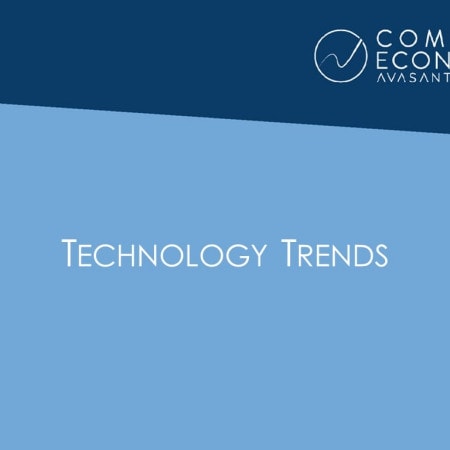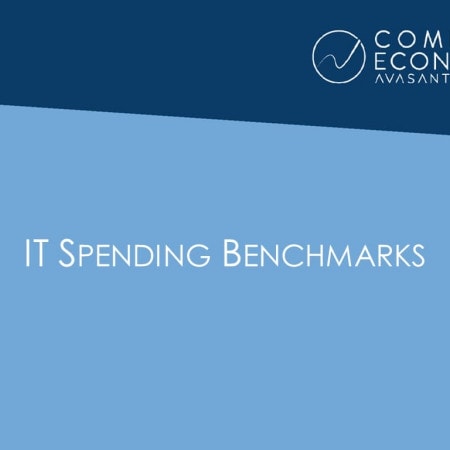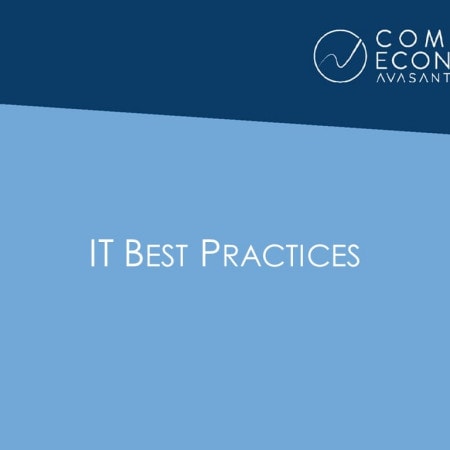-

Windows 7 Adoption and ROI/TCO Experience
Corporate America appears to be eagerly embracing Microsoft's Windows 7 operating system, a stark and dramatic contrast to the reticent approach shown to its Vista predecessor. This study examines the Windows 7 adoption trend, providing data on how many organizations have the technology in place, how many are implementing it, and how many are expanding implementations. To give additional insight, we look at the economic experience of those that have adopted Windows 7: We examine return on investment (ROI) experience in terms of the percentage of organizations that expect positive and break-even ROI within a two-year period. We also balance the potential ROI against the risks, measured in terms of the percentage of organizations that exceed budgets for total cost of ownership (TCO). (14 pp., 8 figs.)[Research Byte]
September, 2010
-

Data Center Hardware Spending and Operating System Trends
IT organizations are spending less on servers, storage, and PCs as a percentage of IT operational budget each year due to declining hardware costs, outsourcing, and better utilization of assets through virtualization and other strategies. In this study, we examine the one-year and five-year trends in spending on servers and storage. We also look at the spending trends for data center software and PC hardware. Finally, we examine operating system trends in the data center, comparing how the mix of various server operating systems is changing over time. We conclude with our recommendations on managing spending on hardware infrastructure. (12 pp., 5 figs.)[Research Byte]
August, 2010
-

Data Center OS Trends and Economic Characteristics
A recently completed Computer Economics survey of senior IT executives provides data on the average processing workload managed by the major operating systems running in today's data centers: Windows, Unix, Linux, mainframes, OS/400, and Netware. The workload percentages are broken down by size of organization and by industry sector. The conclusion: in most industries, Windows leads in share of processing workload. However, there are warning signs in the ROI and TCO for all three operating systems. We analyze these warning signs and provide guidelines for optimizing the economic characteristics of these operating systems. (8 pp., 9 figs.)[Executive Summary]
November, 2006
-

Do Open Operating Systems Pay Off in the Enterprise?
The combination of Microsoftâs animosity, technological improvements, and marketplace competition creates openings for an ever-increasing number of open operating systems. Considering these OS alternatives from the enterprise perspective shows that the various flavors of Linux offer some intriguing economic possibilities.
September, 2002
-

Linux: Soon Appearing on a Mainframe Near Everyone?
As Linux becomes available on more computing platforms, the industry buzz regarding its characteristics, power, and appeal is inescapable and growing.
September, 2002
-

System Management 101: Crash Dumps and You (Jun 2000)
Few things are more important to a system manager than clean data. None of us ever wants any of our systems to crash, but they do, and we need to be prepared for that inevitability. The single best way, and sometimes the only way, to figure out what killed your system is to analyze the crash dump.
August, 2002
-

Role-Based Access Control Offers Cost Savings (July 2002)
Access control is required within networks to manage the privileges, applications, and operations of legitimate users and to protect the integrity of information. The National Institute of Standards and Technology (NIST) has been investigating methods for improving access control of large networks since the early 1990s. Results of that research point toward ways in which network access can be more effectively and economically run.
July, 2002
-

Linux Internationalization Initiative (June 2002)
The Free Standards Groupâs Linux Internationalization Initiative (Li18nux) launched the Asian Scripts Technology & Infrastructure (ASTI) project. ASTI, a joint project with the Research Institute for Languages and Cultures of Asia and Africa, Tokyo University of Foreign Study (ILCAA); and the Japanese Ministry of Education, Culture, Sports, Science and Technology (MEXT) will enable greater support and advanced functionality for Indic and Asian written languages.
June, 2002

 List View
List View